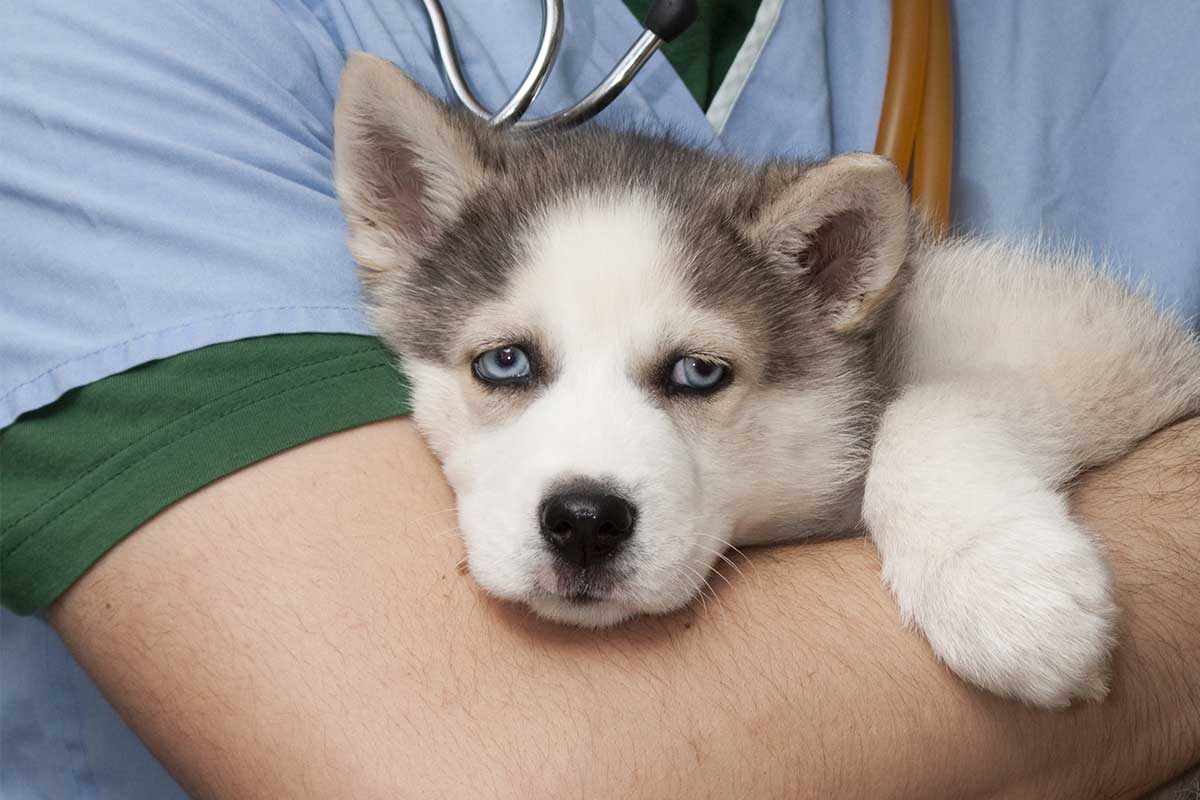Background information about your pup can help the veterinary staff better care for the little guy. And whether the pup acts healthy or is under the weather, it’s important to bring samples from your baby’s (ahem) output for the vet to evaluate. Here’s what you should plan on bringing to the visit.
Documentation
Shelters and rescues should provide paperwork with up-to-date health records. That may include vaccinations or deworming treatments, or might document any health issues (diarrhea? a torn toenail?) for the veterinarian to monitor. Perhaps you’ve received a voucher for spay-neuter procedures you’ll want to bring. Responsible breeders may provide genetic or other test results from your pedigreed pup’s parents, or recommend certain kinds of food. Some provide puppy temperament test results that help to predict future behaviors. This background may influence your baby’s health as he grows up.
Samples
Even healthy puppies can harbor parasites in their stools that may be invisible to you. Bring a stool sample with you, the fresher the better. Turn a plastic baggy inside out, using it like a glove to pick up the feces, and then turn it right side in and seal. Or ask for a stool sample container from the veterinarian during one of your trial run visits. You can store the sample up to 12 hours in the refrigerator prior to the visit. If vomiting is an issue with your puppy, bring a sample of that along as well.
What To Expect
The big day is here! When you arrive, you’ll be asked to fill out information about your pup’s age, breed, sex and name, if not already done during a trial run. Provide any paperwork and samples you’ve collected.
You’ll be taken with your puppy to an exam room. There, the technicians conduct preliminary exams, take the pup’s temperature and weight, and ask about any issues or concerns. If needed, the pup’s nails may be trimmed.
The veterinarian continues the exam. She’ll check the pup’s eyes, ears and anal region for any discharge or diarrhea, and feel his fur and skin to discover any sores or parasites such as ticks or fleas. Your petting preparation means the puppy considers this a love-fest! If the puppy has a hard time, a technician may help by distracting the baby dog with treats or toys as the vet listens to heart and lungs with the stethoscope. Feeding treats can help the veterinarian check out puppy teeth, too.
Based on your puppy’s health and medical history, as well as risk factors specific to your individual situation, the veterinarian will provide preventive vaccinations. These may be injections, nose drops or a combination of the two. Most pups don’t even notice the shots, especially if a yummy treat is offered at the same time. The results of the fecal examination determine the type of parasite medication required, which may be an injection or oral medication. Sometimes the parasite treatment must continue at home.
Once the exam is completed, you return to the front desk to pay the bill, schedule follow-ups, and collect any take-home treatments. Some clinics provide puppy kits for new pet parents, with samples of food, treats and other goodies. You may also have your puppy’s picture posted on the “newbie” wall of honor!
Never hesitate to ask questions. You are a partner with the veterinarian in your puppy’s health. Together, you can make your puppy’s first veterinary visit a positive experience so your special dog grows up to happily accept all future vet visits.
This article was reviewed/edited by board-certified veterinary behaviorist Dr. Kenneth Martin and/or veterinary technician specialist in behavior Debbie Martin, LVT.








